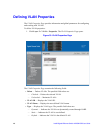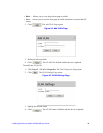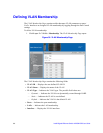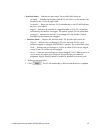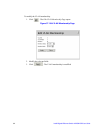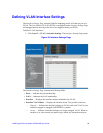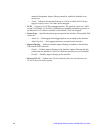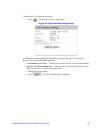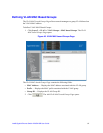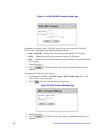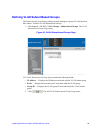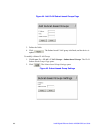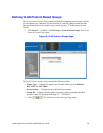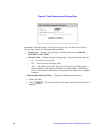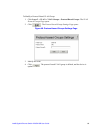56 Intel® Gigabit Ethernet Switch AXXSW1GB User Guide
Defining VLAN Groups
VLAN groups increase network flexibility and portability. For example, network users
grouped by MAC address can log on to the network from multiple locations without
moving between VLANs.
VLANs can be grouped by MAC address, Subnets, and Protocols. Once a user logs on, the
system attempts to classify the user by MAC address. If the user cannot be classified by
MAC address, the system attempts to classify the user by Subnet. If the subnet
classification is unsuccessful, the system attempts to classify the user by protocol. If the
protocol classification is unsuccessful, the user is classified by PVID.
VLAN groups allow network managers to define VLAN groups based on specific criteria,
including MAC addresses, network subnets, and protocols. This section contains the
following topics:
• Defining VLAN MAC Based Groups
• Defining VLAN Subnet Based Groups
• Defining VLAN Protocol Based Groups
• Mapping Groups to VLANs



